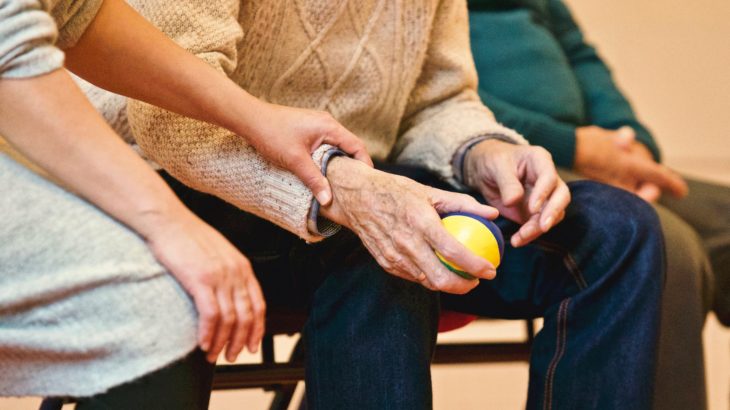Treatment
Treatment in a professional rehab environment is usually the best, safest option for one’s recovery from addiction.
What Are the Signs that My Loved One Is an Addict?
If you believe your friend, family member, spouse, or someone else you love is suffering from addiction, call our helpline if you recognize ANY of these signs of addiction which, according to the National Institute on Drug Abuse, can include:
- Mood swings
- Having strange sleeping and eating habits
- Being very energetic one moment, then irritable the next
- Hostile behavior
- Secretive behavior
- Ignoring one’s personal hygiene and appearance
- Apathy toward things that used to matter to them
- Experiencing issues at work and school due to lateness, a decline in performance, etc.
- Making excuses to take drugs
- Trying to cut back and being unable to, or not cutting back when asked
Loved ones that display these behavior traits, are most likely suffering from an addiction. As a result, they may be unable to stop abusing drugs, even if they genuinely want to do so. Severe physical and psychological issues, depending on the substance of abuse may be experienced without treatment. Unfortunately, most addicts will initially refuse to see a doctor or stop taking the drug for a variety of reasons – fear, sadness, guilt, anxiety, and physical feelings can all keep an addict from saying YES to treatment.
The best way to overcome this issue is to be treated professionally with the evidence-based practices consistently used to help addicts put an end to their substance abuse. This includes counseling and therapy, medical detox, holistic intervention and support.
What Are My Options for Addiction Treatment?
Whether you or someone you love is suffering from addiction and its consequences, treatment is often the best option for recovery. According to NIDA, and despite what many believe, “Treatment does not need to be voluntary to be effective,” and sometimes, family members can obtain sanctions to get their loved ones the care that they need. In other instances, an addict may know it is time to seek help and do so willingly.
Each type of treatment program provides its own benefits and drawbacks, and as a recovering addict, it is extremely important to consider your specific needs as well as which type of program will suit those needs. Keep in mind that addiction recovery is not normally achieved with just one try in rehab or a treatment program. Many recovering addicts must attend long-term treatment or multiple programs in order to build a strong, successful recovery.
Inpatient or residential care
These programs provide patients with 24-hour treatment in a controlled environment. They may stay at the program for as little as 30 days or as long as several months to a year.
Inpatient care is normally most effective for those individuals who are suffering from comorbid disorders, like mental disorders, in addition to addiction and those who do not have a strong social support system at home (Psychiatric Quarterly).
Outpatient care
Outpatient programs provide patients with many of the same options as inpatient centers do. However, patients are able to return home or back to their daily lives after their treatment sessions, visiting the facility sometimes as often as once a day.
As stated by the NIDA, outpatient programs are usually cheaper than the alternative, but they are also “more suitable for people with jobs or extensive social supports.”
Support groups
Support groups are not formal treatment options for addiction, but they can be a beneficial supplement to professional care. In fact, many treatment programs encourage patients to attend support group meetings during and after their rehab program.
12-step groups like Alcoholics Anonymous and Narcotics Anonymous are extremely popular among recovering addicts. Groups like SMART Recovery and Secular Organizations for Sobriety are also beneficial options for those who aren’t comfortable with the 12-step process.
Sober living homes
Many individuals choose sober living houses as a treatment option, though they are not as intensive as traditional rehab programs. These are often beneficial for individuals leaving treatment who are in need of aftercare.
According to a study by the Journal of Psychoactive Drugs, “Lack of a stable, alcohol and drug free living environment can be a serious obstacle to sustained abstinence,” and SLHs allow residents to work, pay rent, and live their day-to-day lives all while staying in a safe, sober environment.
What Does Addiction Treatment Entail?
Knowing the general process of addiction treatment and recovery can help you be more prepared and ensure that your experience will go more smoothly. There are a number of treatment options available in rehab centers across the country that will likely be used as part of your individualized recovery program.
Detox
Most recovering individuals must first go through detox treatment. This is the process of medically treating one’s withdrawal symptoms as their dependence on the drug is slowly diminished.
Detox is much safer than going through withdrawal all at once, which can, in some cases, be deadly. Dangerous withdrawal symptoms are counteracted and medically monitored for safety and comfort during detox.
However, as stated by the NIDA, detox alone is not a treatment for addiction and will do very little to help someone put an end to their substance abuse. This is only the first step of treatment.
Medications
Once you’re stable, you may continue the use of medications or you may be placed on another type of pharmacological treatment. Medications, when used in addiction treatment and monitored by healthcare professionals, help to:
- Minimize withdrawal symptoms
- Reduce cravings for drugs
- Reduce one’s chances of relapse by blocking certain receptors in the brain
- Maintain the individual so they can live their daily lives without substance abuse and the dangerous consequences of such
Behavioral Therapies
Behavioral therapies are considered to be the most effective options for addiction treatment across the board, as they can be used to treat almost any type of substance abuse.
Some of the common behavioral therapies for addiction recovery include:
- Cognitive-behavioral therapy
- Contingency management
- Motivational enhancement therapy
- Group therapy
- Family and couples therapy
- 12-step facilitation therapy
- The Matrix Model
Behavioral therapy teaches patients better life skills for the future that will help them avoid further substance abuse, cope with cravings and stress, and get rid of dangerous attitudes and beliefs toward their addictions.
Holistic Methods
Some treatment options for addiction recovery are not strongly evidence-based but can be very effective in treating the negative effects of substance abuse and misuse. According to the Journal of Psychoactive Drugs, the most common holistic treatment options can include:
- Tai Chi
- Art therapy
- Dance therapy
- Yoga
- Meditation
- Pet and animal therapy
- Vocational services
- Drug education
- Spiritual awareness
- Hypnosis
- Acupuncture
Aftercare
Most patients need some sort of aftercare program once the rehab program has ended. Aftercare helps to restore balance outside of treatment while providing you with a safety zone that keeps you on the path to recovery.
The following aftercare services are commonly provided to patients that are released from a residential treatment program:
- Booster sessions
- Sober living houses
- Halfway houses
- Outpatient care (after inpatient/residential care)
- Continued counseling and therapy
- Job or housing placement assistance
- Educational assistance
Most rehab centers will help their patients set up an aftercare program that will benefit their needs before they leave the facility.
How Long Does Addiction Treatment Last?
Treatment can last as little as a few weeks in some cases and as long as a year or more in others. No two cases of addiction OR recovery are the same; therefore you should not compare your recovery to that of someone else.
According to the NIDA, the most effective treatment programs last at least 90 days with longer programs providing even more effective care. And, as previously stated, most individuals need long-term or multiple treatment programs in order to create the strongest recovery possible.
Will I Be Cured if I Attend Addiction Treatment?
Unfortunately, addiction is considered a chronic disease, similar to diabetes and asthma. This means there is a strong chance of relapse, even when one has attended treatment. This should not steer you away from getting sober—just as you wouldn’t STOP getting treatment for diabetes just because you are worried it may continue to be a problem in your life. Treatment isn’t really focused on “curing” addiction but rather on providing you with the tools to manage the disease and change your behavior in the future to help lower the risk or chances of relapse.
After attending addiction treatment, though, you have a much lower rate of relapse. Treatment also helps to reduce the other negative elements associated with addiction such as drug seeking behavior, criminal activity, job loss, financial instability, and other imbalances that can make day to day struggles even more challenging – (NIDA).
With treatment, your ability to function in professional and personal relationships increases, and you are able to live much more productive and happier lifestyle. With the help of rehab, YOU CAN change for the better––and continue to build on that positive change.
How Do I Find Treatment?
It can seem daunting to find a rehab center that fits your needs or the needs of a loved one. But there are many facilities and programs available that offer safe, effective care to people just like YOU. It may seem like finding a needle in a haystack, but you’re not alone!


